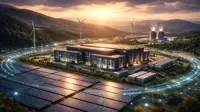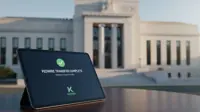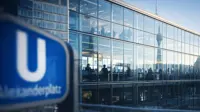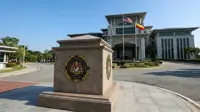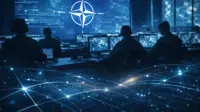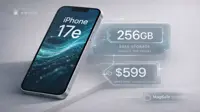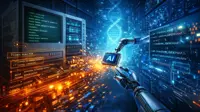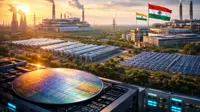The Falcon has landed! Musk’s rocket returns safely
22 Dec 2015
Elon Musk's SpaceX successfully landed the first stage of its Falcon 9 rocket at its landing pad at Cape Canaveral, Florida on Monday evening in its first flight since its rocket exploded six months ago.
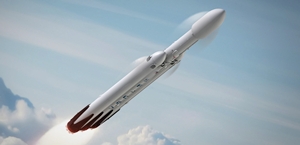
The historic landing, the first time a rocket launched a payload into orbit and then returned safely to Earth, was cheered as a sign that SpaceX, the darling of the commercial space industry, has its momentum back.
"The Falcon has landed," a SpaceX commentator said on the live webcast, as workers at its headquarters went wild, chanting "USA! USA!"
Monday's flight, initially delayed because of technical concerns, was the second time in a month that a billionaire-backed venture launched a rocket into space and recovered it. And it represents yet another significant step forward in the quest to open up the cosmos to the masses.
Typically, rocket boosters are used once, burning up or crashing into the ocean after liftoff. But Musk, the billionaire co-founder of PayPal and Tesla, and Jeffrey Bezos, the founder of Amazon.com who has his own space company, have been working on creating reusable rockets that land vertically by using their engine thrust. If they are able to recover rockets and fly them again and again, it would dramatically lower the cost of space flight.
Reusing the first stage, which houses the engine and is the most expensive part of the rocket, was thought impossible by many just a few years ago. But last month Bezos' Blue Origin flew a rocket to the edge of space, and landed it in a remote swath of West Texas.
On Monday, SpaceX's first flight since its Falcon 9 rocket blew up in June, Musk topped his fellow tech billionaire and space rival, by landing a larger, more powerful rocket designed to send payloads to orbit, and not just past the boundary of what's considered space. It was a much more complicated feat that was celebrated as another leap forward for Musk and his band of rocketeers.
SpaceX's unmanned-and recently upgraded- Falcon 9 rocket launched from Cape Canaveral, Florida at 8:29 pm on a mission to deliver 11 commercial satellites into space for Orbcomm, a communications company. A few minutes later, the towering booster performed an aerial U-turn, and headed back to Earth, hurtling back through gusty winds and using its engine thrust to slow down.
Guided by fins on the side of the rocket, it steered toward the landing pad SpaceX has built on the Cape-Landing Zone 1-and touched down vertically in a dramatic, pinpoint landing.
Previously, SpaceX had attempted to land the first stage on a floating platform Musk calls an "autonomous spaceport drone ship." Twice the rockets hit the barge, but they came down too hard or at a slight angle, and exploded.
Monday's landing is yet another breakthrough for SpaceX, which was the first commercial company hired by NASA to ferry supplies to the International Space Station. And it won another contract, along with Boeing, to fly astronauts to the station, as soon as 2017.
But as SpaceX, based outside of Los Angeles, has evolved from spunky start-up to a mainstream space company, it remains focused on its main mission: one day flying to Mars, which Musk hopes humans will eventually colonize. While it has raised revenue by flying for NASA and commercial satellite companies, SpaceX has continued to push toward developing the technologies that eventually would make humans a "multi-planet species," as Musk says.
In order to do that, the cost of space flight, now prohibitively high, would have to come down significantly. And the ability to reuse rockets ultimately will make space travel more accessible, he has said.
As Musk said during a forum last year, there are "no runways on Mars," meaning rockets would have to land using the thrust in their engines.
"You really have to get good at propulsive landing if you want to go somewhere other than earth," he said.
Musk is part of a class of billionaires inspired by NASA's Apollo era and moon landings, who have sunk vast amounts of their great fortunes into their space companies.
Early next year, Richard Branson's Virgin Galactic is slated to unveil a new space craft that's designed to take tourists just past the boundary of space, where they would be able to view the curvature of the Earth and float around the cabin, weightlessly.
Bezos has a similar ambition, and likes to talk about the day that "millions of people will be living and working in space."
In a sign of the growth of the industry, Musk and Bezos have taken over significant parts of Florida's Space Coast as their companies become more experienced.
SpaceX is rehabbing the historic launch pad at the Kennedy Space Center from which the space shuttle flew. And it has also built Landing Zone 1, which looks like a massive helicopter landing pad, 282-feet in diameter. The site was last used as an Air Force missile and rocket test site until 1978.
Bezos has taken over a launch pad at the cape, just down the road from Musk's landing site.
For every step forward, though, there have been setbacks. Branson's SpaceShipTwo crashed last year, killing one of the pilots. And SpaceX had been grounded since June, when its Falcon 9 rocket blew up a couple minutes into flight. The company determined that the explosion was caused by a faulty strut that broke, and it since has upgraded its Falcon 9 rocket.
On Monday, it appeared to perform flawlessly.
